Introduction
Choosing the right Best Large Breed Dog Food for your large breed dog ensures they live a long, healthy, and happy life. Large-breed dogs have specific nutritional needs. Their needs differ from those of smaller dogs due to their size. This article will guide you through the best dog food options for large breeds. It will emphasize the importance of nutrition and how it affects their health.
The Importance of Nutrition for Large Breeds
Proper nutrition plays a pivotal role in the health and well-being well-being of large-breed dogs. Understanding the dietary needs of larger breeds is key. It promotes their longevity, strength, and quality of life. This article covers the critical aspects of nutrition for large breeds. It stresses the need for tailored diets to prevent health issues and boost vitality.
German Shepherds, Labrador Retrievers, and Great Danes are breed dogs. They need a balanced diet rich in nutrients. The food should support their unique body and energy needs. Key components include high-quality proteins. They are for maintaining muscle. Also, there are controlled fat levels to prevent obesity. And there are carbohydrates for sustained energy. Also, enough calcium and phosphorus are crucial. They are key for strong bone development. This is especially true for growing puppies. It helps them avoid skeletal disorders like hip dysplasia.
However, the nutritional needs of large breeds extend beyond basic components. Omega-3 fatty acids are vital for joint health. They reduce inflammation and the risk of arthritis. Arthritis is joint in large dogs. Also, fibre supports digestion. This is crucial for large breeds prone to stomach issues.
Choosing the proper diet for a large breed dog can be challenging, but it’s essential for their health. These formulas are for large breeds. They are designed to meet their needs for balanced meals. It’s advisable to ask a vet for help. They can develop a feeding plan for your large breed. The plan will support their health based on age, weight, and activity level.
Nutrition is a cornerstone of health for large-breed dogs. Pet owners can ensure their large companions lead happy lives. They can do this by focusing on a diet that addresses their unique needs.
Key Nutritional Needs of Large Breed Dogs
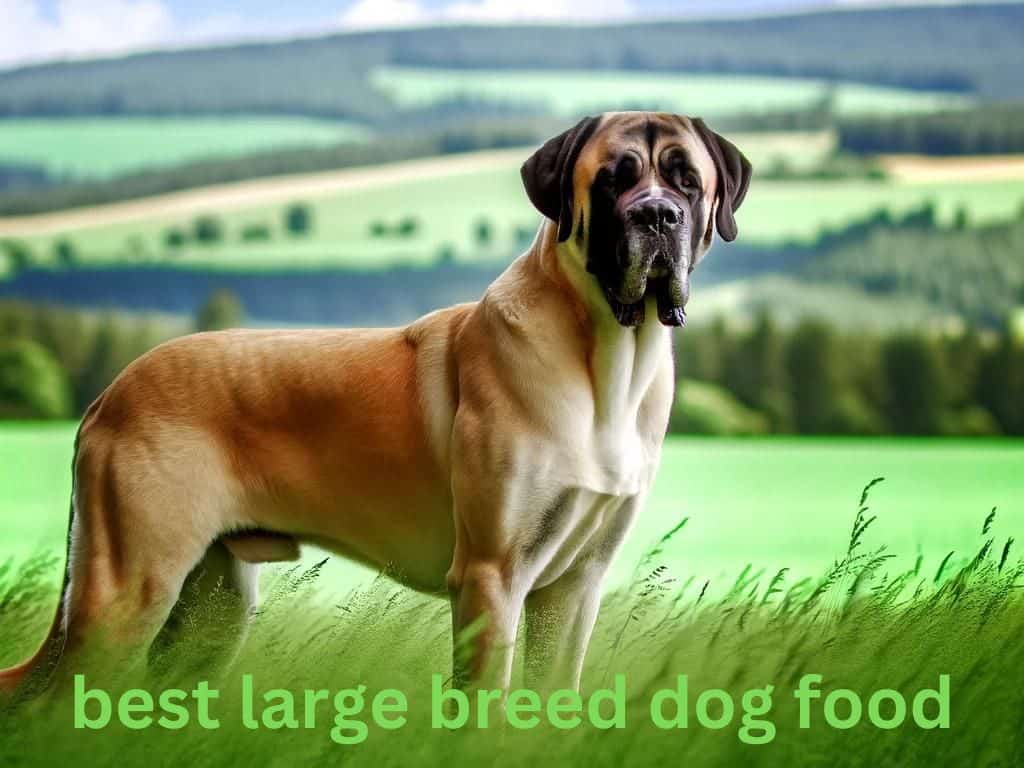
The health and vitality of large-breed dogs hinge on their diet. Customizing nutrition for their unique needs is vital. It’s critical for their development, longevity, and well-being. This concise guide explores the primary nutritional needs of big dogs. These needs are essential for owners dedicated to fostering their pet’s health.
Protein is key to an extensive breed’s diet. It supports muscle strength and maintenance. But, the quality of protein matters as much as the quantity. Look for diets rich in whole, identifiable meats. They ensure ideal growth and muscle health.
Giant breeds have specific calorie requirements. Eating too many calories can cause rapid growth. It leads to health issues, such as joint problems and obesity. So, they need a balanced diet. It fuels their size without making them grow too fast. This is critical.
The diet of big dogs needs careful attention. This is the ratio of calcium and phosphorus. Proper balance supports strong bone development and prevents skeletal disorders. A veterinarian can help. They can tailor these levels to your dog’s specific life stage.
Fats are essential for energy and cell function, but moderation is key. Omega-3 fatty acids are good for joint health. They also reduce inflammation. This is vital because joint issues are common in larger breeds.
Big dogs need fibre for digestion. They also need antioxidants for their immune system. A diet incorporating fruits and vegetables can provide these nutrients .
Fundamentally, your large breed dog gets a diet tailored to these needs. A balanced diet promotes a healthy life for your large pet. It makes them more vibrant.
Top Factors to Consider When Choosing Dog Food

Choosing the best dog food can be tricky. There are so many options. But, understanding the top factors to consider can simplify the process. Here’s what you need to know to ensure your dog receives the best nutrition possible:
Dog’s Age, Breed, and Activity Level
Nutritional needs vary across different life stages, breeds, and activity levels. Puppies and senior dogs, for instance, have other dietary requirements. Large breeds may need food that supports joint health. Active dogs need more calories. Always select a dog food tailored to your pet’s specific needs.
High-Quality Protein Source
Protein is the foundation of a healthy diet for dogs. Look for foods with whole meats or meat meals (chicken, beef, lamb) as the primary ingredient. High-quality protein supports muscle maintenance and health.
Fats and Omega-3 Fatty Acids
Fats are vital for energy. Omega-3 acids are key for thinking and skin. But, the source and amount of fat matter. Look for foods with named fat sources like chicken fat or salmon oil.
Carbohydrates and Fiber
While dogs don’t need carbs for energy, they are necessary for digestive health. Whole grains, vegetables, and fruits provide fibre, vitamins, and minerals. Opt for dog food with recognizable carbohydrate sources.
Artificial Additives and Fillers
Avoid dog foods with unnecessary fillers, artificial colours, and preservatives. These can be harmful to your dog’s health. Natural ingredients and preservatives like vitamin E (mixed tocopherols) are preferable.
Special Dietary Needs and Allergies
Consider any specific health issues or allergies your dog may have. Hypoallergenic formulas or grain-free options might be necessary for dogs with sensitivities.
Choosing the right dog food is a decision that affects your pet’s health and quality of life. Considering these key factors will help you choose a diet. It will meet your dog’s specific nutritional needs. This will help ensure they lead a happy, healthy life.
Vitamins and Minerals
Vitamins and minerals are the building blocks of health. They are essential for keeping the body working well and full of energy. Eating a variety of these nutrients helps your body. It supports things like bone strength and immune defense.
Key vitamins, such as Vitamin C, D, and E, and vital minerals, like calcium, iron, and magnesium, are critical. They help with energy, thinking, and cell repair. Eat a diet rich in fruits, vegetables, lean proteins, and whole grains. This ensures you get the full power of these micronutrients. Eat a balanced diet to boost your health. It has the essential vitamins and minerals your body craves.
Recommended Dog Foods for Large Breeds

Feeding large breed dogs requires choosing the right dog food. It is key for their health and longevity. Big dogs have special nutritional needs. These needs must be met to prevent common health issues. These issues include joint problems and obesity. Here are the top recommended dog foods. They are for large breeds. They ensure your gentle giant thrives.
High-Protein Formulas
Look for dog foods that list real meat as the first ingredient. Brands like “Blue Buffalo Life Protection Formula” and “Orijen Large Breed” offer food with lots of protein. It supports muscle maintenance and overall health, which are crucial for large breeds.
Joint Health Support
Large breeds are prone to joint issues. So, it’s essential to choose a dog food with added glucosamine and chondroitin. Hill’s Science Diet Large Breed is famous for its special formula. It supports joint health and mobility.
Balanced Nutrition
“Purina Pro Plan Large Breed” offers a balanced diet. It is tailored to the needs of large breeds, with the right mix of protein, fat, and carbs. This mix helps them keep an ideal weight and have energy.
Grain-Free Options
Dogs can have sensitivities. Grain-free options, like “Taste of the Wild High Prairie”, can give them the needed nutrition. And, they avoid the risk of allergies. These formulas often contain new proteins. They are rich in omega fatty acids for healthy skin and fur.
Age-Specific Formulas
Large breed puppies and seniors have different nutritional needs. “Royal Canin Large Puppy” is for optimal growth in puppies. “Eukanuba Senior Large Breed” is for older dogs. It ensures they get the right nutrients for their life stage.
Choosing the right food for your large breed dog is critical for their health and happiness. These top dog foods are recommended. They offer tailored nutrition to meet the needs of large breeds. This is from puppyhood through their golden years. Rank high-quality ingredients. They help with joint support and are for specific life stages. They will keep your gentle giant healthy and active.
Homemade Dog Food Recipes for Large Breeds
You must feed your large-breed dog a balanced, nutritious diet. This diet is essential for their health and happiness. Homemade dog food is a wholesome alternative to commercial diets. It lets you tailor meals to your pet’s needs. Here are some healthy homemade dog food recipes. They are made for the special needs of large breeds.
Lean Protein & Vegetable Mix
Start with a base of lean ground turkey or chicken, cooked thoroughly. Mix in steamed vegetables. They can be carrots, peas, and sweet potatoes. They are rich in vitamins and fibre. Add a calcium source, such as crushed eggshells, to support bone health. This recipe provides good protein and vital nutrients. It is ideal for maintaining muscles and energy.
Beef & Brown Rice Feast
Cook lean ground beef, removing any excess fat. Combine it with cooked brown rice, a complex carbohydrate that offers sustained energy. Incorporate spinach and pumpkin for fibre and vitamins. A dash of flaxseed oil adds omega-3 fatty acids, promoting a shiny coat and healthy skin.
Fish & Oats Dinner
Prepare boneless salmon or mackerel, rich in omega-3 fatty acids for joint health. Mix with cooked oats, a heart-healthy grain. Include zucchini and blueberries for antioxidants and digestive health. This meal supports joint health and cognitive function, making it perfect for large breed dogs.
Chicken & Quinoa Delight
Boil the chicken breast. Then, mix it with cooked quinoa, a great source of protein and amino acids. Add kale and carrots for minerals and vitamins. A spoonful of coconut oil can boost the immune system and ensure a healthy coat.
Remember, when making homemade dog food, you must consult your vet. This ensures the meals meet your dog’s needs. Tailor the recipes to include a balance of protein, carbs, fats, and essential vitamins. This will help keep your large breed dog healthy and vital.
The Role of Exercise in a Large Breed’s Diet
Owners of big dogs need to understand the partnership between diet and exercise. It is key to ensuring their pet’s longevity and vitality. This guide covers the need to add exercise to a large breed’s diet. It is vital for their health and well-being.
Large breed dogs are known for their size and strength. They need regular exercise. It helps them manage weight. It also supports joint health, muscle tone, and mental well-being. Exercise is essential. It works with a good diet to keep a healthy weight. This reduces strain on joints. These joints are prone to conditions like hip dysplasia and arthritis. These conditions are common in larger dogs.
A balanced diet has lots of proteins, fats, and essential nutrients. It fuels your large breed’s energy. This makes daily exercise routines more effective. High-quality dog foods are made for large breeds. They provide the calories needed to fuel their energy during physical activities. Adding lean proteins helps with muscle repair and growth. Omega-3 fatty acids in fish oils reduce inflammation. They also improve joint mobility for exercise.
Moderate to hard exercise, tailored to the dog’s health and age, boosts heart health. It also aids digestion. This helps large breeds prone to bloating and digestive issues. Walking, hiking, and playing fetch are such activities. They stimulate the mind and reduce anxiety and behavior problems. They also strengthen the bond between pet and owner.
A balanced exercise routine complements a healthy diet. It keeps your big dog healthy, happy, and active. Consulting with a vet can help find the best diet and exercise plan for your pet’s needs. This will promote a balanced lifestyle for your gentle giant.
This article emphasizes the critical role of exercise for large-breed dogs. It works with a balanced diet. The aim is to inform pet owners about a holistic approach to their pet’s health.
Common Health Issues and Nutritional Prevention
Today’s society is health-conscious. It is vital to understand the link between diet and disease. It is more important than ever. Nutrition is key to preventing many common health issues. It offers a natural path to wellness and better life quality. This guide explores how smart diet choices can help prevent common health conditions.
Heart disease is a leading cause of death worldwide. It can often be reduced by diets rich in omega-3s, fibre, and antioxidants. Salmon, flaxseeds, and berries support heart health. They do this by lowering blood pressure and cholesterol. Adding these nutrients to your daily meals can cut the risk of heart ailments.
Diabetes management and prevention are influenced by dietary habits. Eating whole grains, lean proteins, and many vegetables helps regulate blood sugar. This controls diabetes. Also, cutting processed sugars and carbs is crucial. It prevents the onset of this condition.
Obesity is a key risk factor for many diseases. It can be addressed by mindful eating and balanced nutrition. Fiber-rich foods, like fruits, veggies, and whole grains, help you feel full. They also help you manage your weight. Eating well and exercising regularly are key. They help fight obesity and its health risks.
Additionally, certain diets can play a significant role in preventing cognitive decline. Vitamin E is found in nuts and seeds. Omega-3 fatty acids are in fish. These nutrients are vital for brain health. They can also protect against Alzheimer’s disease and dementia.
By prioritizing nutrition and choosing food wisely, individuals can protect their health. They can do so based on common issues. Eating a diet with whole foods, balanced nutrients, and natural ingredients is key. It prevents disease and promotes a vibrant, healthy life.
FAQs
1. What ingredients should I look for in the best large breed dog food?
Look for lean proteins first. They should be high-quality, like chicken, beef, or fish. Also, look for healthy fats. These include omega-3 fatty acids, fiber-rich vegetables, and grains. These are essential vitamins and minerals for joint support. They include glucosamine and chondroitin. They are also important.
2. How does large-breed dog food differ from regular dog food?
It supports the unique needs of larger dogs. It has controlled calories to prevent weight gain. It has balanced calcium and phosphorus for bone health. And, it has nutrients that support joints.
3. Can large breed puppies eat the same food as adult large breed dogs?
No, big puppies need different food from adult dogs. They need more calories and specific nutrients for growth and development. Look for puppy formulas designed for large breeds.
4. Is grain-free dog food a good option for large breeds?
Grain-free options can suit dogs with grain allergies. But, the diet must be balanced and meet all your large breed’s nutritional needs. Recent studies suggest a link between grain-free diets and heart issues in dogs. So, ask a vet before making a switch.
5. How often should I feed my large breed dog, and how much?
Feeding schedules and amounts vary depending on the dog’s age, size, and activity level. Generally, adult large-breed dogs do well with two meals per day. You must follow the feeding guidelines on the dog food packaging. Adjust as needed based on your dog’s health and advice from your vet.
Conclusion
Selecting the best food for your large breed dog is crucial for their health and longevity. Focus on their exact nutritional needs. This will help prevent common health issues. It will ensure your furry friend leads a robust, active life. Remember, talk to a vet. They can give custom

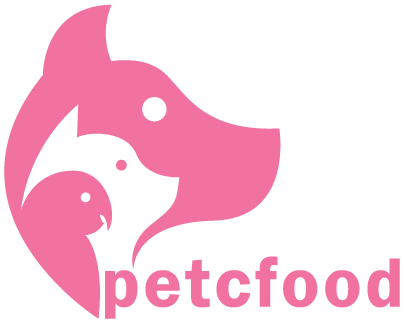
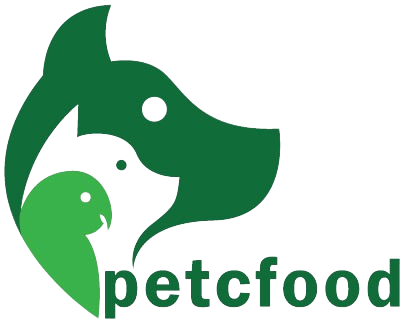










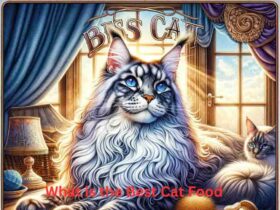
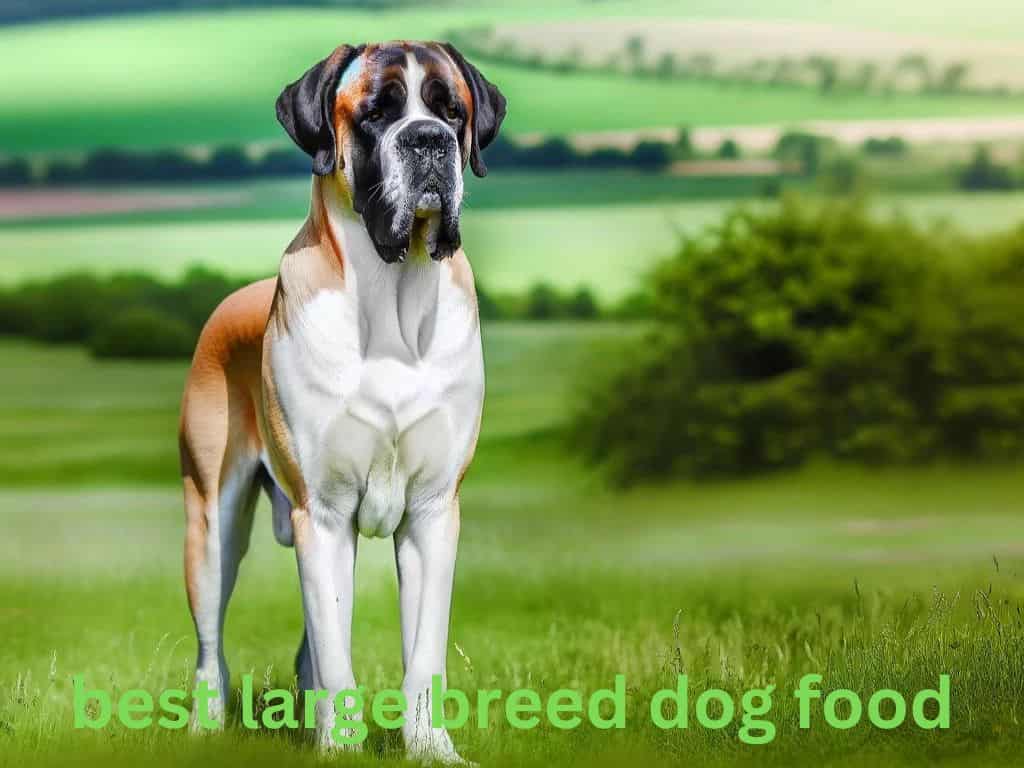
Leave a Review